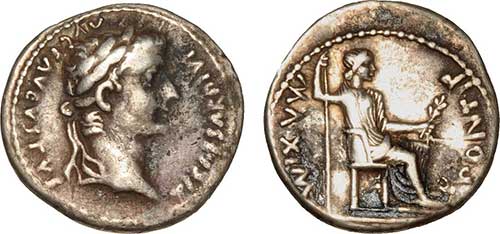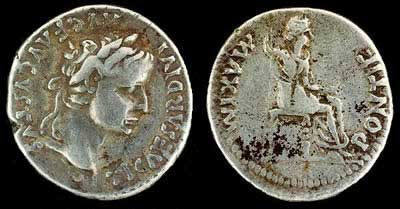
Let us pray (in silence) [that God may continue to guide and gather us]
pause
Almighty and everlasting God,
in Christ you have revealed your glory among the nations:
Preserve the works of your mercy,
that your Church throughout the world
may persevere with steadfast faith
in the confession of your Name;
through Jesus Christ our Lord,
who lives and reigns with you and the Holy Spirit,
one God, for ever and ever.
Amen.
This is from TEC’s Book of Common Prayer (p.235) – an ancient, shared prayer – the commentary is here.
Roman Catholics use a collect with an ancient, shared history.
Let us pray (in silence) [that the God who entices us may also enable us to be transformed]
pause
Almighty and everliving God,
conform our wills freely to yours,
and direct our hearts
to share your glory by our undivided service;
through Jesus Christ
who is alive with you,
in the unity of the Holy Spirit,
one God, now and for ever.
Amen.
The commentary is here.
Lectionary Readings Introduction
This site provides something different: many sites and books provide a brief summary of the reading – so that people read out or have in their pew sheet an outline of what they are about to hear. They are told beforehand what to expect. Does this not limit what they hear the Spirit address them? This site provides something different – often one cannot appreciate what is being read because there is no context provided. This site provides the context, the frame of the reading about to be heard. It could be used as an introduction, printed on a pew sheet (acknowledged, of course), or adapted in other ways.
Exodus 33:12-23
A context is the biblical thread of not being able to see the face of God and live. Hence those stories where people encounter God’s presence (Exodus 33:14 Hebrew literally “face”) and live are stories pointing to death and resurrection and new life.
Isaiah 45:1-7
This text is part of Deutero-Isaiah (Chapters 40-55) addressed not to those in Jerusalem but to the exiles in Babylon, probably around 537 BCE. God addresses Cyrus, the Persian emperor, as God’s anointed – messiah. This title was used for kings (1 Samuel 16:6), prophets (Psalm 105:15), and priests (Leviticus 4:3). Not for the hoped-for Promised one. God works through surprising means – including those who are not aware of God’s action (Isaiah 45:4).
1 Thessalonians 1:1-10
This is most likely the earliest document in the New Testament. Thessalonica was a port on the northern shore of the Aegean Sea and the capital of the Rmoan province of Macedonia. Paul, Silvanus, and Timothy had a negative experience in Philippi (Acts 16:11-40, 1 Thessalonians 2:2) and moved on to Thessalonica. They were forced to move on (Acts 17:1-10) by Jewish opposition. When Timothy rejoined Paul in Athens, Paul sent him to Thessalonica (1 Thessalonians 3:1-2). Paul then travelled to Corinth. Timothy and Silvanus (“Silas”) met Paul in Corinth (Acsts 18:1-5). Timothy told Paul about positive aspects of the Thessalonian community (1 Thessalonians 3:6-7) and some of their issues (2:17-18). So in 50 or 51 CE Paul wrote this letter from Corinth. Some scholars think this is a conflation of two or three letters.
Matthew 22:15-22

A denarius from the time of Tiberius who reigned from 14CE to 37CE image source (link off this site)
The context of this story needs an understanding of the Pharisees (link off this site) as contrasted with Saducees – they were strict in their interpretation of the totality of the written and oral form of the law. By expanding beyond the written law, they held to newer beliefs such as resurrection and angels. It is clear that Jesus’ beliefs were more closely aligned with the Pharisees than with the Saducees. Herodians (link off this site) were supporters of Herod the Great’s dynasty.
The insincere flattery of the questioners does not take Jesus in as he once again shows his mastery of challenge and riposte in this culture of honour. The coin (above) has the image of the emperor Tiberius with the Inscription: TI CAESAR DIVI AVG F AVGVSTVS (“Tiberius Caesar son of divine Augustus son of Augustus”) and on the other side the image of Livia, the mother of Tiberius and wife of Augustus, as Pax seated, with the inscription PONTIF MAXIM (“Pontifex Maximus”) – high priest and now one of the titles of the Pope. Pharisees, as other pious Jews would have been offended by the declaration of Tiberius’ divinity and this graven image. That someone from the Pharisee/Herodian group produces this coin shames the questioners.
Reflection on the Collects
The first collect above (“…in Christ you have revealed your glory among the nations…”):
The “name” of God regularly refers to God’s nature. As we confess or proclaim God’s name we are called to express God’s nature. The church is a sacrament of God’s name, God’s nature. We are called to point to and to express God. As church we fall short of this calling. Our life individually and together does not express God’s nature. There are church scandals and individuals’ sinfulness. Our worship and services can be so sloppy, so poorly thought through, so lacking in energy and enthusiasm that most have little growth in their relationship with God.
On the other hand we can focus so much on church, perfecting its structures, polishing up every detail of services, that the attention (again) is drawn more onto the church than to that towards which the church is to point – God.
This can be expressed as two problems with a signpost. The sign may be so poor, neglected, difficult to read, that it does not direct people to where it was supposed to be pointing. The opposite is that people can spend all their energy on improving and beautifying the sign – and focus on the sign, again ignoring where it points.
Some Christians are manifestly so duplicitous that their lives deny God. Others appear so self-contained, that people look up to them with awe – but are not drawn by their lives to God our source. Our call is not a balance of these situations, not a half-way position between weakness and strength, but a third alternative: that our lives shine as a light before others in such a way that when they see our good works people naturally end up giving glory to God (Matthew 5:16).
This collect is to be found as the first of the nine collects of the Good Friday General Intercessions. It is found there in the Gelasian Sacramentary (401), Missale Gallicanum vetus (95), Gregorian Sacramentary (339), and the Sarum missal. William Bright translated it for Ancient Collects (p.98)
The Roman Catholic missal retains its position in the Good Friday intercessions and translates it as (including the bidding):
Let us pray, dear friends,
for the holy Church of God throughout the world,
that God the almighty Father
guide it and gather it together
so that we may worship him
in peace and tranquility.
Silent prayer.
Almighty and eternal God,
you have shown your glory to all nations in
Christ, your Son.
Guide the work of your Church.
Help it to persevere in faith,
proclaim your name,
and bring your salvation to people everywhere.
We ask this through Christ our Lord.
Amen.
The origin of this collect in the solemn Good Friday intercessions can remind us of our calling to pray for a breadth of foci, especially at the Eucharist: the church, its mission and leaders; the world and those in authority; those in need; and our own and local issues.
The second collect above: “…conform our wills freely to yours…”:
This collect appears three times in the Gelasian Sacramentary. It is the collect for the Sunday after the Ascension in the Sarum rite and, for that Sunday, through into the 1962 Roman Missal. After Vatican II, it was moved to the Twenty-Ninth Sunday in Ordinary Time in the Roman Rite. I do not know of its occurrence in any post-Reformation Anglican Rites.
Omnipotens sempiterne Deus, fac nos tibi semper et devotam gerere voluntatem, et maiestati tuae sincero corde servire.
fac present singular imperative of facere do, make, create, ensure, enable, cause
gerere from the third century can mean “to celebrate a festival” or simply “celebrate”, “to be pregnant”, to exercise, conduct
servire (“serve”) “to be useful for, be of service to”.
maiestas is equivalent to gloria (Greek δόξα doxa). See 2 Cor 3:18.
Make us always both exercise a free-will devoted to you
and serve your majesty with a sincere heart.
We will find our glory (a share in God’s glory) in service, in our free-will devoted to God.
God, in Christ, comes in self-emptying service, and we share in God’s glory by our service. God entices and enables us to share in the gift of our transformation. May we behave in this way, with our behaviour only possible by our cooperation with God’s gift.
ICEL (1973):
Almighty and ever-living God, our source of power and inspiration, give us strength and joy in serving you as followers of Christ.
In the failed 1998 English Missal translation:
God ever faithful and true,
form our wills at all times to accord with your own, and so direct our hearts,
that we may render you undivided service.
We ask this through our Lord Jesus Christ, your Son,
who lives and reigns with you in the unity of the Holy Spirit, God for ever and ever.
ICEL (2011):
Almighty ever-living God, grant that we may always conform our will to yours and serve your majesty in sincerity of heart.
Resources beyond this site:
Textweek
Preaching Resources Down Under
Girardian Reflection on the Lectionary
Do follow:
The Liturgy Facebook Page
The Liturgy Twitter Profile
The Liturgy Instagram
and/or sign up to a not-too-often email


